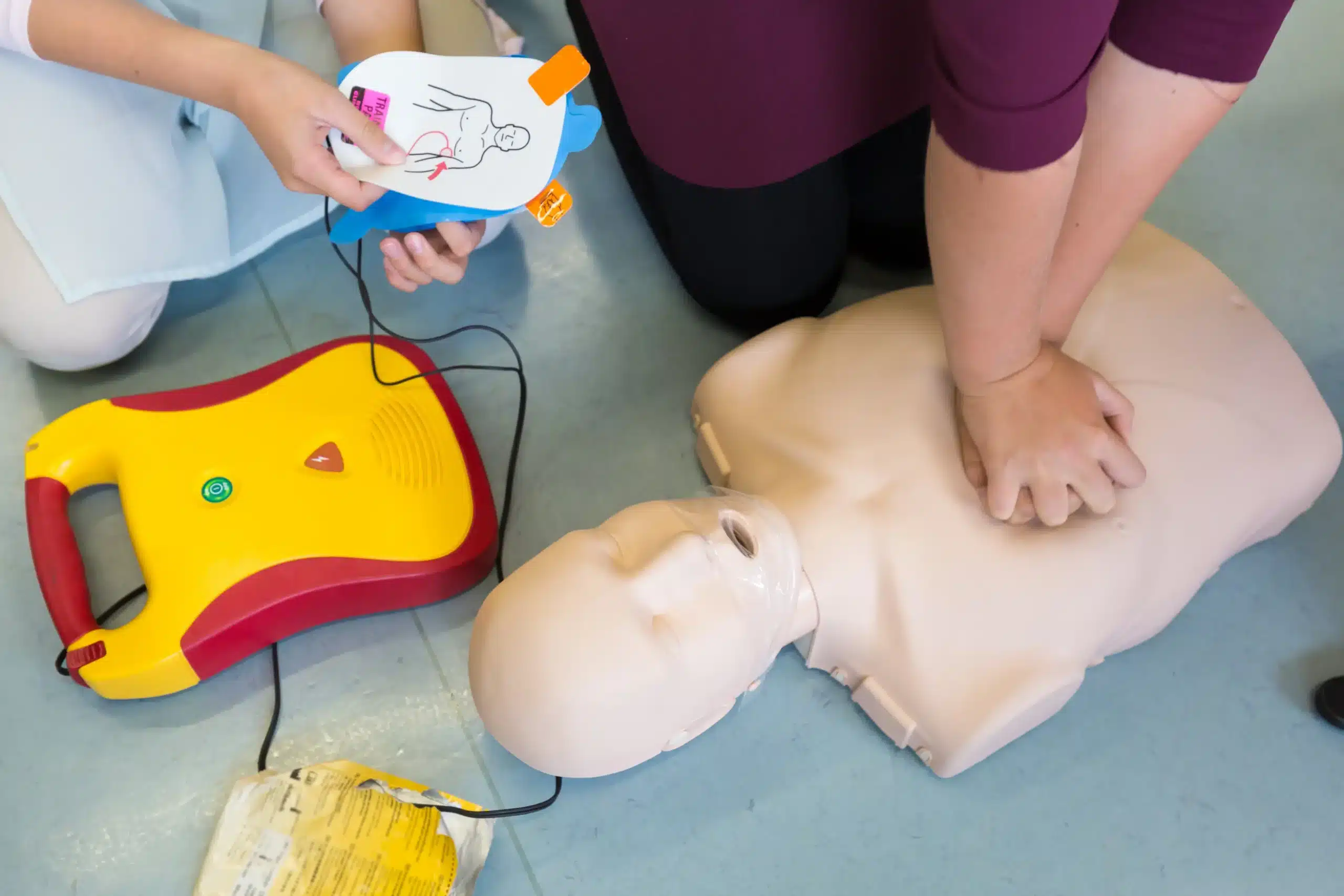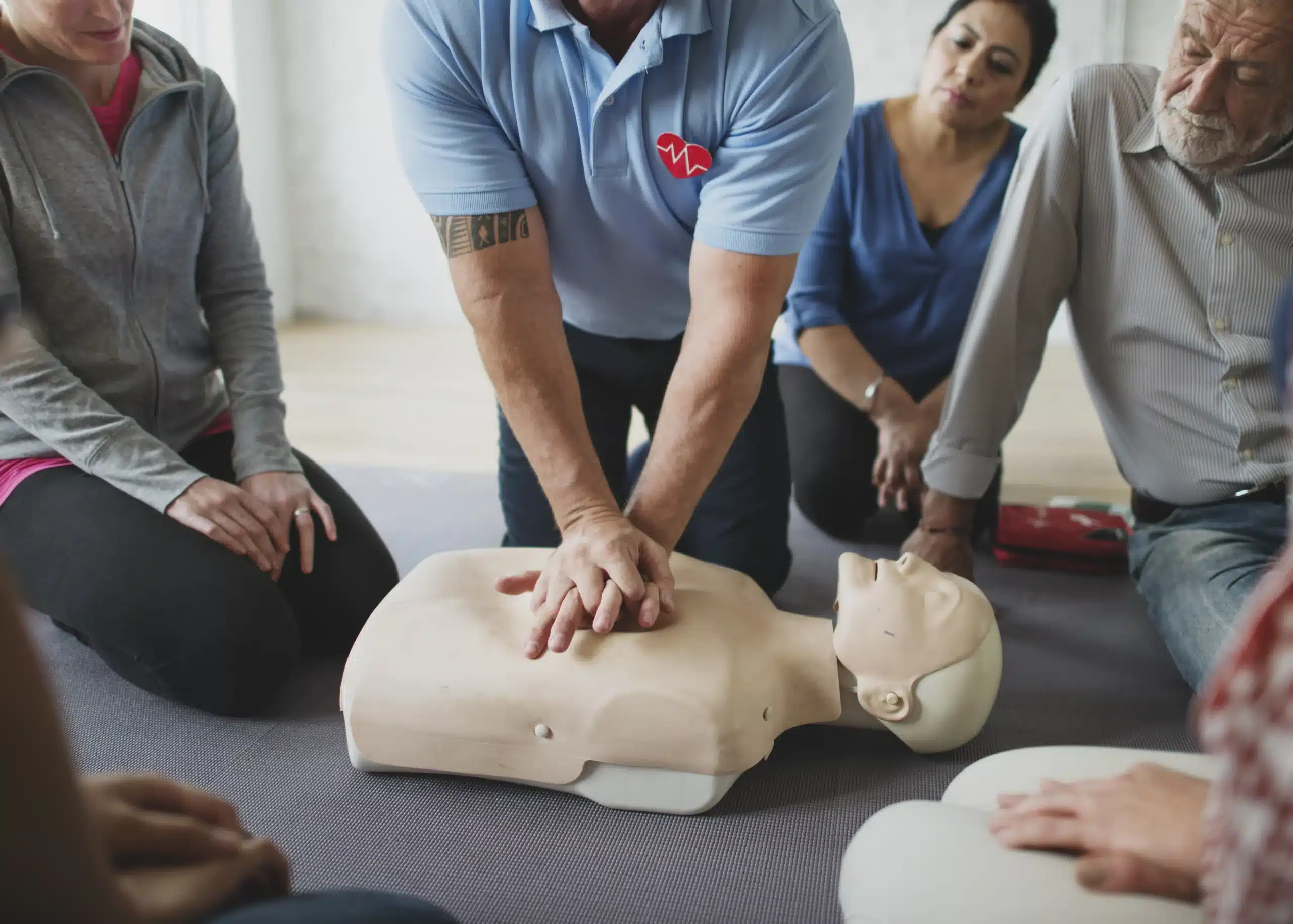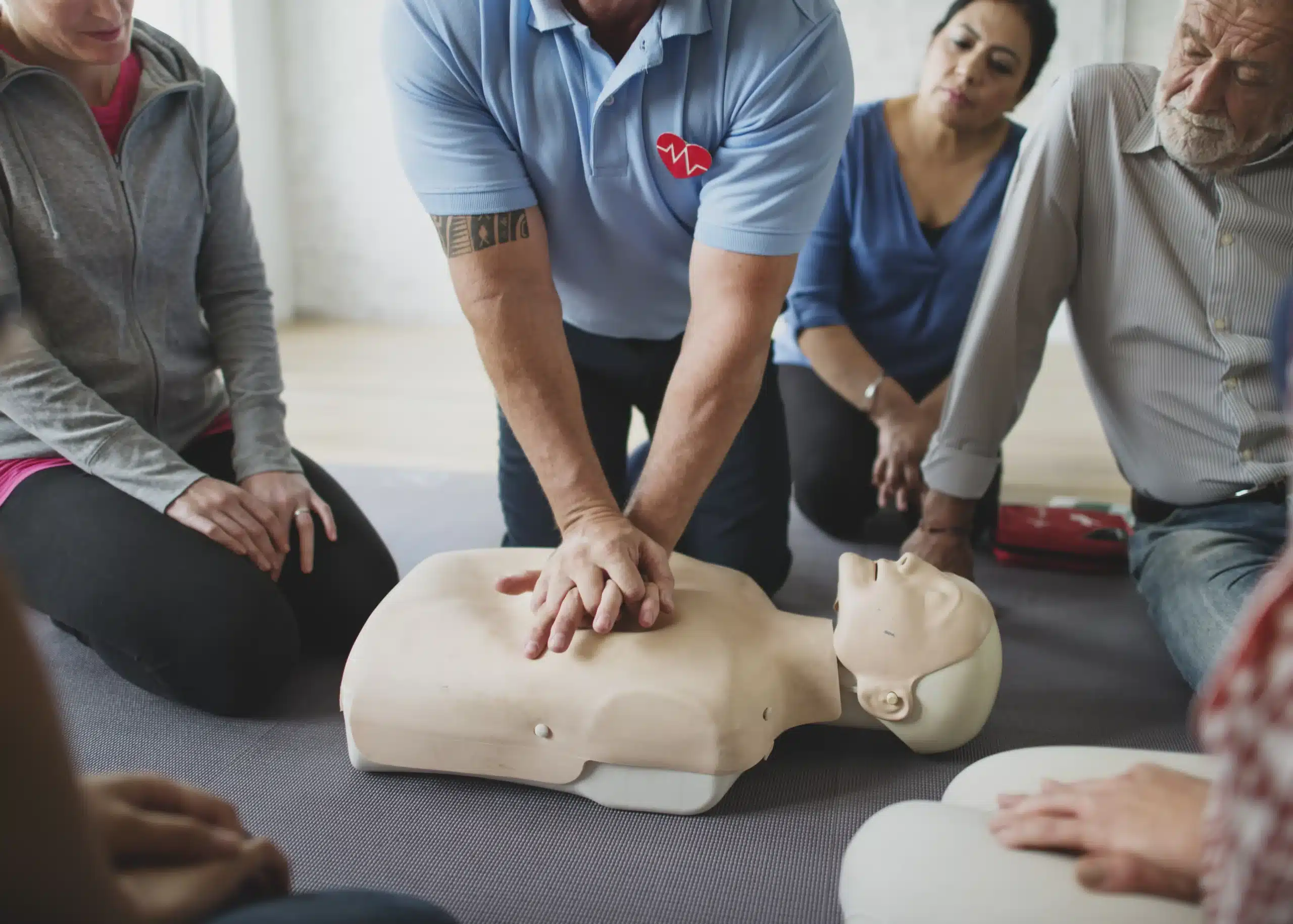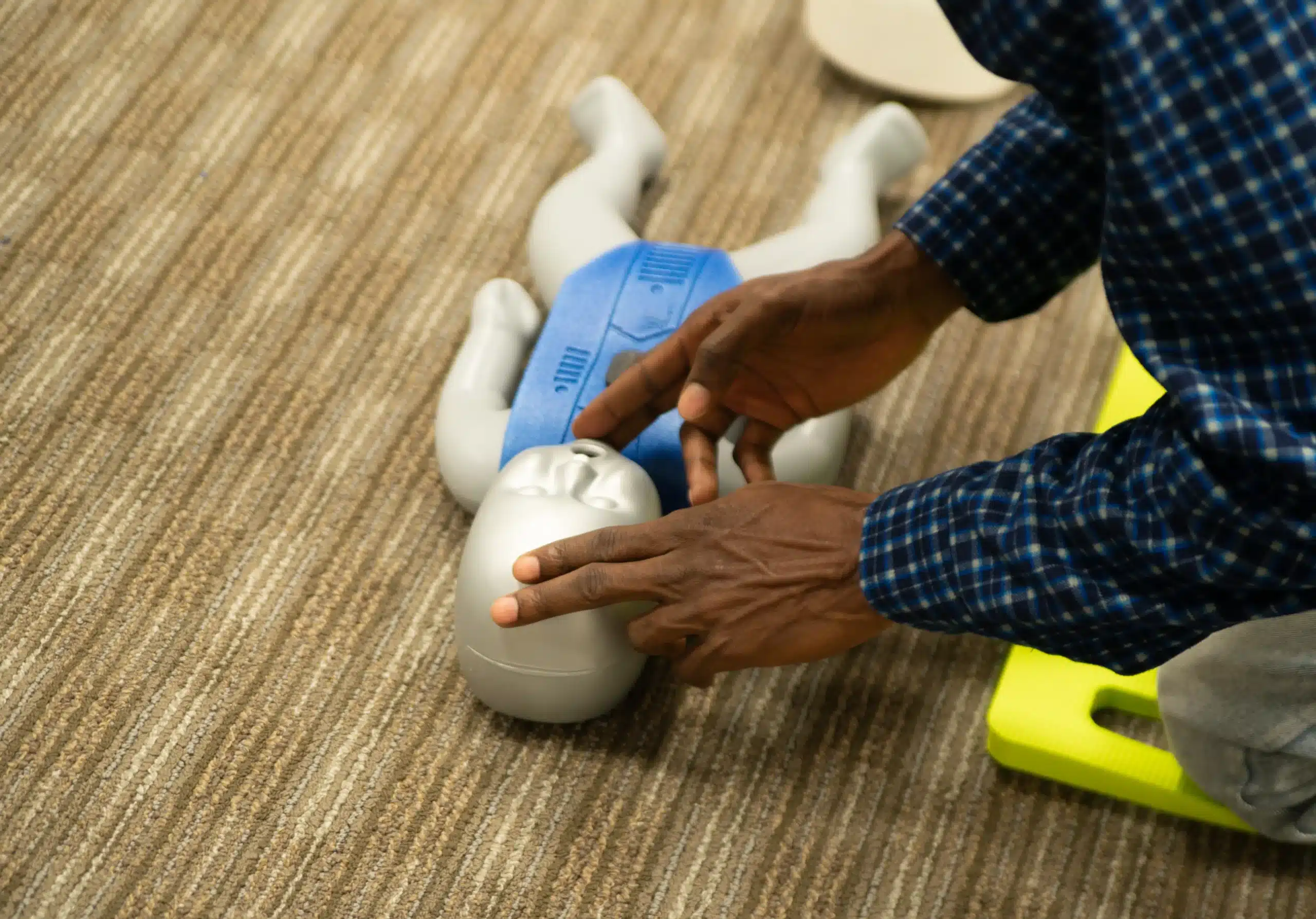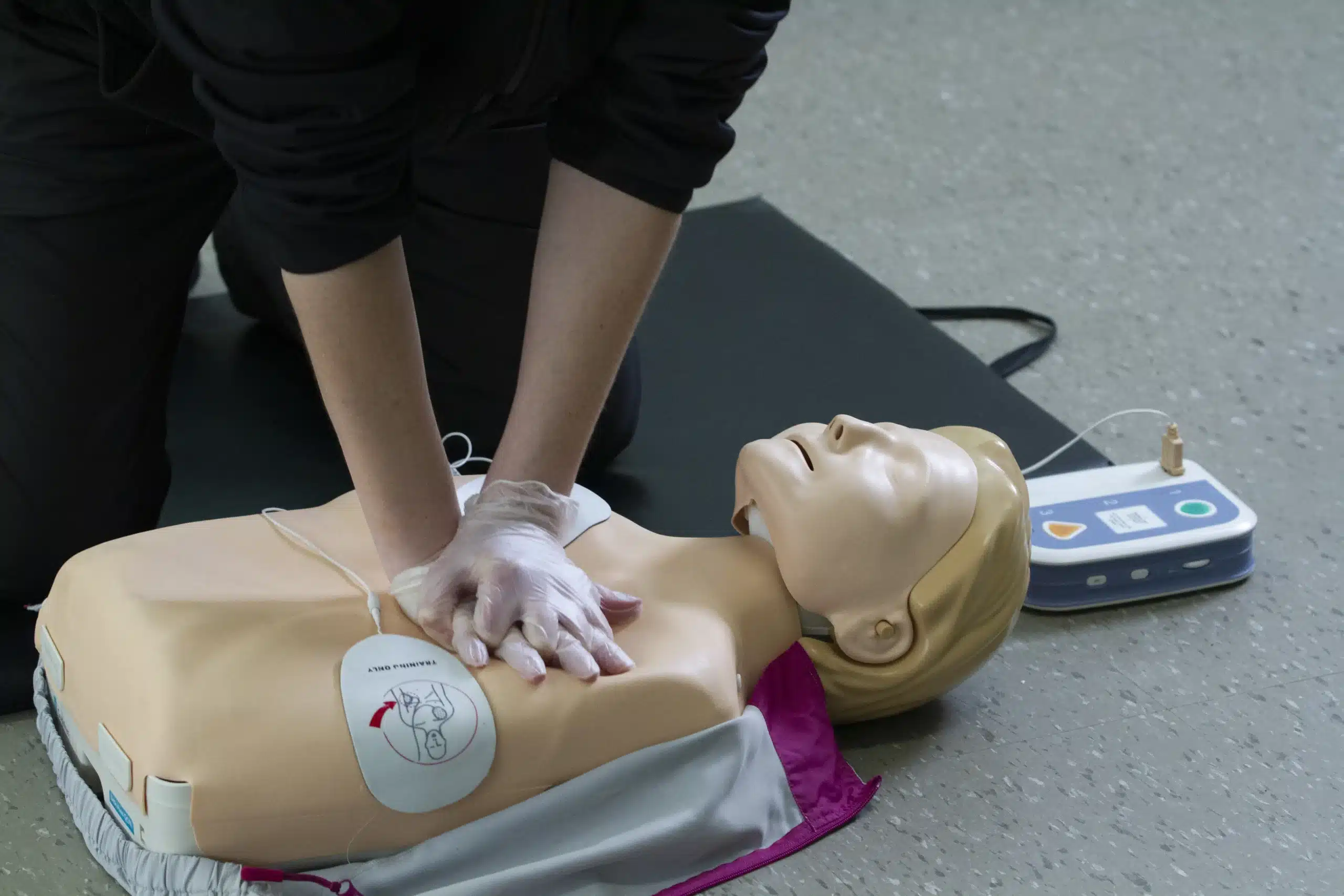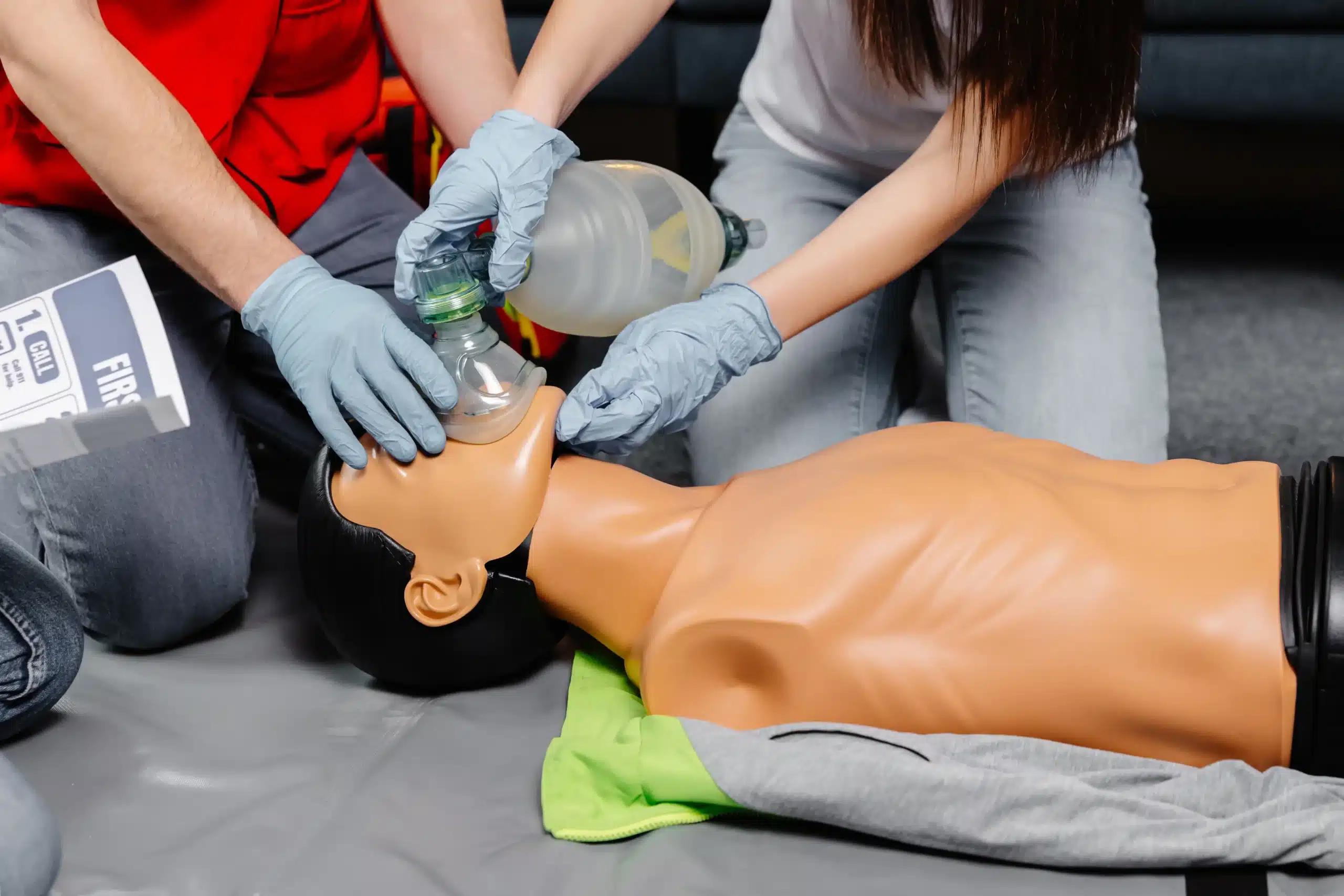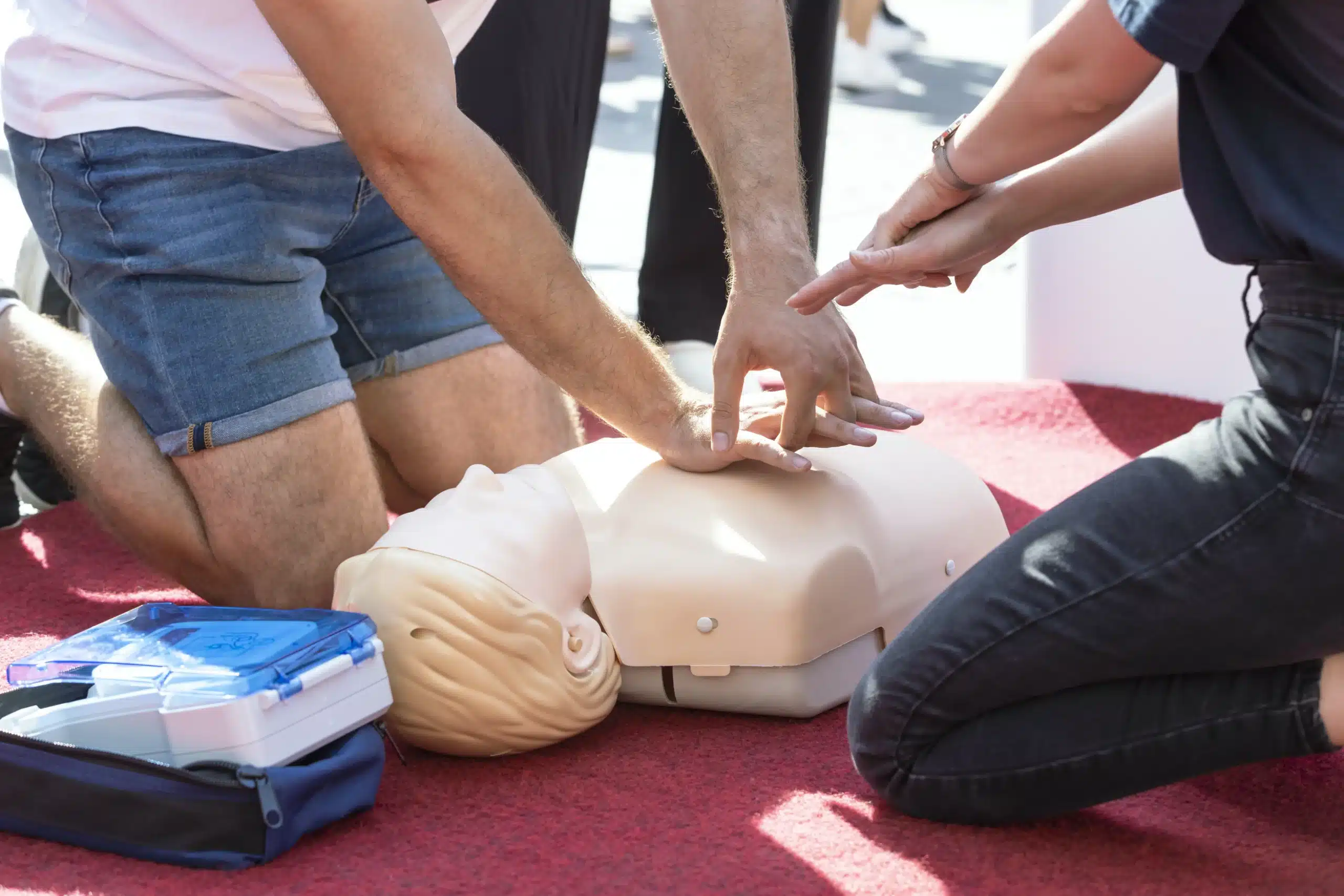Working in healthcare, especially with newborns, means being prepared for anything. One of the most crucial skills you can have is the ability to respond effectively during a neonatal emergency. That’s where the Neonatal Resuscitation Program (NRP) comes in. This training equips healthcare professionals with the knowledge and skills to provide the best possible care for newborns needing immediate medical attention. If you’re a healthcare provider in Cupertino, finding a quality NRP program is essential. This article explores the importance of NRP, what the training entails, where to find NRP in Cupertino, and how it can benefit your career and the newborns you care for. We’ll cover everything from the basics of NRP to choosing the right training provider and preparing for your course.
Key Takeaways
- NRP certification equips you with essential newborn care skills: This training provides the knowledge and practical skills to stabilize and resuscitate newborns, leading to improved patient outcomes. Choose between NRP Essentials and NRP Advanced based on your role and responsibilities.
- Select the right NRP course format and provider: Consider your learning style and schedule when choosing between online, in-person, or blended learning. Research providers, checking for accreditation, reputable organizations, and competitive pricing.
- Prepare for your NRP course with focused study: Complete the online modules, review the textbook, and practice case-based scenarios. The in-person training involves hands-on skill practice, simulations, and debriefings to build confidence and proficiency in neonatal resuscitation.
What is NRP and Why is it Important in Cupertino?
The Neonatal Resuscitation Program (NRP) equips healthcare professionals with the skills to resuscitate newborns. It emphasizes teamwork, communication, and leadership—critical during emergencies. This training is especially important in Cupertino, where providers prioritize excellent newborn care. The program covers the basics of neonatal resuscitation and is designed for anyone involved in the process, from doctors and nurses to midwives and respiratory therapists. The American Academy of Pediatrics website details who can benefit from this training. Millions of healthcare providers across the US have completed NRP training, demonstrating its widespread impact. NRP ensures providers stay up-to-date with the latest techniques and best practices, as highlighted by the American Academy of Pediatrics. Contact us today to learn more about NRP Certification in Cupertino. Completing this training allows Cupertino healthcare professionals to improve newborn outcomes in our community.
What is NRP and Who Needs It?
What is the Neonatal Resuscitation Program (NRP)?
The Neonatal Resuscitation Program (NRP) provides an evidence-based approach to newborn care immediately after birth. It emphasizes effective team-based care for healthcare professionals present at delivery. The program equips these professionals with the knowledge and skills to stabilize and resuscitate newborns, promoting the best possible outcomes. The NRP Provider Course introduces the core concepts and fundamental skills of neonatal resuscitation.
Healthcare Professionals Who Need NRP Certification
NRP certification is essential for any healthcare professional involved in newborn care at the time of delivery. This includes physicians, nurses, respiratory therapists, and midwives. Different levels of NRP training address varying levels of involvement with newborn care. NRP Essentials offers a foundation for anyone involved in newborn care, while NRP Advanced focuses on those directly responsible for resuscitation during and immediately after delivery. These internationally recognized NRP programs meet the learning needs of instructors and providers worldwide. Whether you’re a doctor, nurse, or another healthcare provider attending births, NRP certification gives you the skills to handle any situation.
Find NRP Training in Cupertino
If you’re a healthcare provider in Cupertino looking for Neonatal Resuscitation Program (NRP) certification, you have several options to choose from. Whether you prefer hands-on learning, online convenience, or a combination of both, there are courses to fit your needs and schedule.
In-Person NRP Courses
In-person NRP courses offer hands-on training and direct interaction with instructors. This format allows you to practice essential skills and receive immediate feedback. NRP Learning, located in Cupertino, offers a range of educational programs. Contact them to learn more about their NRP course schedule and availability. In-person training is often a good fit for those who value hands-on learning and real-time interaction.
Online NRP Courses
Online NRP courses provide flexibility and convenience. The American Academy of Pediatrics (AAP) website offers details on the NRP Provider Course, which covers the core concepts and skills of neonatal resuscitation. This online format lets you learn at your own pace and from any location with internet access. Make sure the online course you select meets all certification requirements for your area.
Blended Learning Options
Blended learning combines online coursework with in-person instruction. RQI Partners provides information on the 8th Edition of the NRP, which includes NRP Essentials and NRP Advanced learning pathways. These blended options allow you to complete some coursework online before attending an in-person skills session. This approach can be an effective way to balance online convenience with practical skills application. Check with your certifying body to ensure the blended learning format fulfills their requirements.
Key NRP Training Components
Essential Skills Covered in NRP Courses
The Neonatal Resuscitation Program (NRP) equips healthcare professionals with the crucial skills needed for effective neonatal resuscitation. It introduces the core concepts and basic skills required to respond to newborns needing immediate medical attention. This training covers preparation for resuscitation, assessment of the newborn, positive-pressure ventilation, chest compressions, and post-resuscitation care. The American Academy of Pediatrics’ NRP Provider Course is designed for healthcare professionals involved in any aspect of neonatal resuscitation. This includes physicians, nurses, advanced practice nurses, nurse midwives, licensed midwives, respiratory care practitioners, and other professionals providing direct care during these critical moments. The comprehensive training ensures participants can handle various emergency situations involving newborns. The 8th edition of NRP introduces two learning levels: “NRP Essentials,” which covers foundational lessons, and “NRP Advanced,” which explores more complex techniques and scenarios. This tiered approach from RQI Partners allows providers to tailor their learning based on their specific roles.
Latest Neonatal Resuscitation Techniques
NRP uses a blended learning approach, combining online testing with hands-on, case-based simulation and debriefing. This method emphasizes leadership and communication skills, essential for effective teamwork during neonatal resuscitation. The American Academy of Pediatrics highlights the importance of this blended learning format, which focuses on critical leadership and communication. This ensures healthcare providers are not only knowledgeable but also adept at collaborating in high-pressure situations. The program incorporates the latest advancements in neonatal resuscitation, keeping providers up-to-date with the most effective techniques. The American Academy of Pediatrics notes that the NRP continues to evolve to meet the educational needs of instructors and providers through interactive education. Its global recognition, with implementation in over 130 countries, underscores its significance and effectiveness in improving neonatal care.
Choose the Right NRP Provider in Cupertino
Finding the right Neonatal Resuscitation Program (NRP) provider is crucial for developing the skills needed to care for newborns. Several factors go into choosing the best program for your needs and setting you up for success. This section will guide you through the selection process.
Factors to Consider When Selecting an NRP Course
First, consider the level of training offered. The NRP curriculum offers two learning pathways: NRP Essentials and NRP Advanced. NRP Essentials provides a foundation for anyone involved in newborn care, while NRP Advanced focuses on those attending deliveries and managing resuscitations. Understanding this difference helps you choose the course that aligns with your responsibilities. Consider your current skills and workplace requirements when making this decision.
Course format matters too. Do you prefer in-person instruction, online learning, or a blended approach? Think about your learning style and schedule. Some providers offer more hands-on practice, while others focus on online simulations. Choosing a format that complements your learning preferences will improve your experience.
Accreditation and Certification Requirements
Make sure your chosen NRP course meets accreditation and certification standards. Look for programs accredited by reputable organizations like the American Academy of Pediatrics (AAP). The AAP website offers resources on NRP Provider courses and their importance for various healthcare professionals. Verifying accreditation ensures the course aligns with established guidelines. Also, confirm that the certification is widely recognized within the healthcare community. This is essential for career advancement and demonstrating your competency.
Top NRP Providers in Cupertino
Finding the right NRP provider is crucial for a high-quality learning experience. Here are some of the training centers offering NRP certification in and around Cupertino:
Campbell CPR Classes
Campbell CPR Classes offers NRP certification along with other AHA courses like BLS, ACLS, PALS, and First Aid. They prioritize excellent customer service and affordable pricing, making them a popular choice. Learn more about their NRP course.
NRP Learning
Located in Cupertino, NRP Learning offers various educational resources and professional development programs. While their primary focus isn’t solely on healthcare training, they do provide resources for NRP certification.
AJ Tutoring and Sylvan Learning
While known primarily for academic tutoring, both AJ Tutoring and Sylvan Learning can support students preparing for NRP certification with personalized learning plans and resources.
Elite Medical Training
Elite Medical Training specializes in healthcare training, offering a comprehensive NRP course. They focus on equipping healthcare professionals with practical skills for neonatal resuscitation.
California Medical Training Center
The California Medical Training Center provides an evidence-based NRP course designed for various healthcare providers. They emphasize a comprehensive approach to newborn care, ensuring thorough training.
Get and Renew Your NRP Certification
Steps to Obtain NRP Certification
Getting your NRP certification is a two-step process. First, you’ll complete the online portion—the NRP Advanced Modules—covering essential concepts and skills. These self-paced modules let you learn and review the material when it’s convenient. Next, you’ll attend an instructor-led course with hands-on skills stations, simulations, and debriefing sessions. This in-person training is essential for mastering practical neonatal resuscitation techniques. Lifework offers a comprehensive program that combines online learning with in-person skills development.
Renewal Requirements and Timeframes
NRP certification is generally valid for two years. To stay up-to-date, renew your certification before it expires. Renewal typically involves a refresher course with updated online modules and an in-person skills assessment. Start the renewal process a few months early to ensure you have time to complete all requirements. For more information on NRP certification and renewal options in Cupertino, contact Campbell CPR Classes. We’re here to help you maintain your NRP certification and provide the best possible care.
NRP Training Costs in Cupertino
Understanding the cost of NRP certification is an important part of your planning. This section breaks down average course pricing and how to find competitive rates.
Average NRP Course Pricing
NRP course fees depend on several factors, including the provider, location (online or in-person), and the specific curriculum. Generally, the cost for NRP Provider courses ranges from $75 to $150. Renewal courses tend to be slightly less expensive. Instructor courses, which certify you to teach NRP, are priced higher, typically between $150 and $300. Always check directly with the training center for their most up-to-date pricing. For example, you can find NRP course pricing at Campbell CPR Classes on their website.
Competitive Pricing and Low Price Guarantees
Finding a high-quality, yet affordable NRP course is possible. Look for training centers that offer competitive pricing or a low-price guarantee. Some providers offer discounts for group registrations or package deals if you’re also taking other courses like BLS or PALS. Campbell CPR Classes offers a low price guarantee, ensuring you receive excellent training at a competitive price. Before committing to a course, compare prices from different providers and ask about any available discounts. This research can save you money while still receiving excellent instruction.
Prepare for Your NRP Course
So, you’re ready to pursue your NRP certification—fantastic! Preparation is key for success in this course. This section covers what you need to know before your NRP training and what to expect during the course.
Pre-Course Materials and Study Tips
The Neonatal Resuscitation Program (NRP) uses a blended learning approach. This means you’ll complete some coursework before your in-person skills session. Familiarize yourself with the required materials and use these study tips to get ready:
- Textbook: The official NRP textbook is your primary resource. The 8th edition offers two learning pathways: NRP Essentials (covering lessons 1-4) and NRP Advanced (covering lessons 1-11). Make sure you know which pathway is required for your certification level.
- Online Exam: Before your in-person training, you’ll likely take an online exam covering the textbook material. Many providers, such as Elite Medical Training, require this as a prerequisite. Give yourself ample time to study and pass the exam.
- Focus on Key Concepts: Pay close attention to the core principles of neonatal resuscitation, including airway management, positive-pressure ventilation, chest compressions, and medication administration.
- Practice Scenarios: Work through the case-based scenarios in the textbook. This will help you apply the concepts and prepare for the hands-on portion of the training.
What to Expect During NRP Training
NRP training combines online learning with hands-on skill practice and simulation. Here’s a glimpse of what to expect during the in-person portion of your NRP course:
- Skills Stations: You’ll participate in various skills stations to practice essential techniques like bag-mask ventilation, intubation, and chest compressions. Instructors will provide guidance and feedback to help you refine your skills.
- Simulation Scenarios: Get ready to participate in realistic simulation scenarios designed to mimic real-life neonatal resuscitation events. These scenarios will challenge you to apply your knowledge and skills in a team-based environment, as described by the American Academy of Pediatrics (AAP) in their NRP Provider Course description.
- Debriefing and Feedback: After each simulation, you’ll participate in a debriefing session to discuss the scenario, analyze your performance, and identify areas for improvement. The AAP highlights the focus on critical leadership and communication skills during these debriefings.
- Teamwork and Communication: NRP training emphasizes the importance of effective teamwork and communication during resuscitation events. You’ll learn how to communicate clearly and efficiently with other healthcare providers in a high-pressure environment.
Benefits of NRP Training for Healthcare Professionals
For healthcare professionals working with newborns, Neonatal Resuscitation Program (NRP) training offers significant advantages, both professionally and in terms of patient care. It’s a valuable investment that can enhance your career and equip you with the skills to make a real difference.
Career Advancement Opportunities
NRP certification is often a requirement for roles in neonatal intensive care units (NICUs), labor and delivery, and other settings where newborn resuscitation may be necessary. The American Academy of Pediatrics (AAP) designs the NRP Provider Course for healthcare professionals directly involved in neonatal resuscitation, including physicians, nurses, advanced practice nurses, nurse midwives, licensed midwives, respiratory care practitioners, and others. Holding an NRP certification demonstrates a commitment to specialized knowledge and skills, making you a more competitive candidate for advanced positions and leadership roles. It can open doors to new opportunities and contribute to greater professional recognition.
Improved Patient Care and Outcomes
Perhaps the most crucial benefit of NRP training is its direct impact on patient care. The AAP notes that millions of healthcare professionals have received NRP training, highlighting its widespread adoption and importance in improving neonatal outcomes. RQI Partners emphasizes the program’s blended learning approach, combining online testing with hands-on case-based simulations and debriefings. This practical training equips providers with the skills and confidence to effectively manage real-life resuscitation scenarios. By mastering essential resuscitation techniques and communication strategies, NRP-trained professionals contribute to better patient outcomes, reducing complications, and improving the chances of survival for newborns needing critical care. The focus on leadership and communication within the NRP curriculum further enhances teamwork and coordination during emergencies, creating a more effective response.
Related Articles
- NRP Certification Classes in Campbell, CA – Campbell CPR Classes
- CPR Certification in Campbell: Your Comprehensive Guide – Campbell CPR Classes
- Discounted CPR Classes in Santa Clara County – Campbell CPR Classes
- Low Price Guarantee CPR Classes in Campbell, CA
- RQI Classes in Campbell, CA – Campbell CPR Classes
Frequently Asked Questions
What does NRP certification entail?
NRP certification involves a blended learning approach. You’ll complete online modules at your own pace, followed by an in-person skills session where you’ll practice techniques like bag-mask ventilation and intubation. This combination of online learning and hands-on practice ensures you grasp both the theory and practical application of neonatal resuscitation.
How long is NRP certification valid, and how do I renew it?
NRP certification typically lasts for two years. Renewal involves completing updated online modules and an in-person skills assessment. It’s best to begin the renewal process a few months before your certification expires to avoid any lapse in your credentials.
What’s the difference between NRP Essentials and NRP Advanced?
NRP Essentials provides a foundational understanding of neonatal resuscitation, suitable for healthcare professionals involved in newborn care but not directly responsible for resuscitation. NRP Advanced is geared towards those who attend deliveries and manage resuscitations, covering more complex scenarios and techniques.
How much does NRP certification cost in Cupertino?
The cost varies depending on the provider and course format. Expect to pay between $75 and $150 for the initial NRP Provider course. Renewal courses are usually slightly cheaper. Instructor courses, which allow you to teach NRP, typically cost more. It’s always wise to compare prices and inquire about potential discounts.
How can I find a reputable NRP training provider in Cupertino?
Look for providers accredited by recognized organizations like the American Academy of Pediatrics (AAP). Consider factors like course format (online, in-person, or blended), instructor experience, and the provider’s reputation. Reading reviews and comparing offerings can help you find the best fit for your needs.


